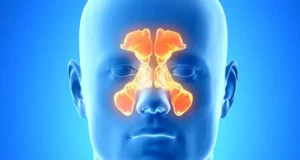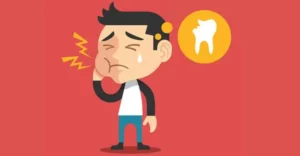The temporomandibular joint (TMJ) is the root of many symptoms often attributed to other medical conditions. Grinding or clenching of the jaw as well as locking or popping of the temporomandibular joint is often a sign of dysfunction, which could be causing seemingly unrelated symptoms. If you have been treated for these conditions in the past with temporary or no relief, you may be suffering from dysfunction of your TMJ. Do you suffer from:
Headaches
Often headaches associated with TMJ dysfunction are localized to sinuses, base of skull or wrap around the top of your head. The headaches can also present as eye pain.
Sinus pain/pressure
Patients with TMJ dysfunction will often have sinus pain/pressure that is described as a sinus infection. Anti-inflammatories may lessen symptoms but they quickly return when medication is completed.

Ear ringing/pressure/fullness
The temporomandibular joint is in close proximity to the ear; therefore, with increased joint inflammation, symptoms may be felt in the ear. Symptoms are often described as pain, ringing or pressure/fullness.

Teeth sensitivity
The muscles that are associated with the temporomandibular joint attach to the jaw. When these muscles are in spasm, they can refer pain to teeth, causing increased sensitivity.

If any of these symptoms sound familiar and you have not received lasting relief from them in the past, you may be suffering from TMJ dysfunction. You can be seen by a physical therapist that specializes in TMJ treatment/care for further diagnosis and treatment.
If you are suffering and not sure what to do next, why not start with a free telephone consultation with one of our expert physical therapists?…



